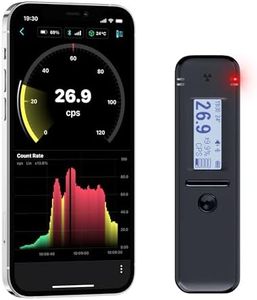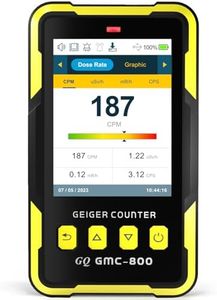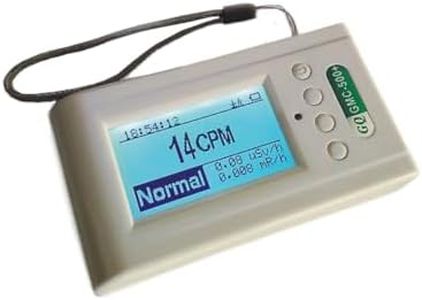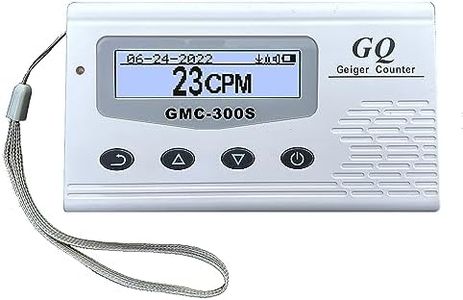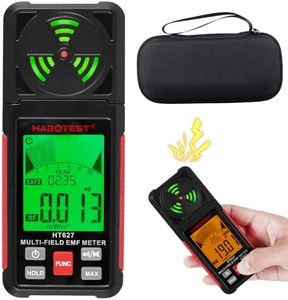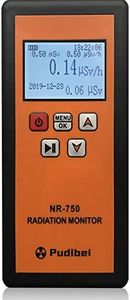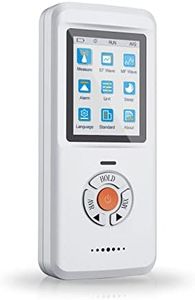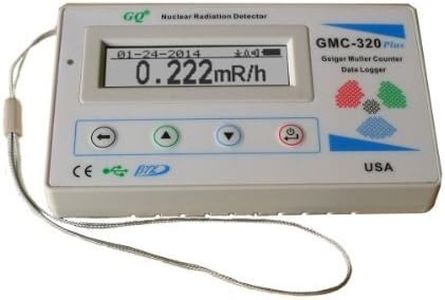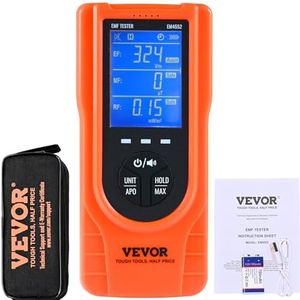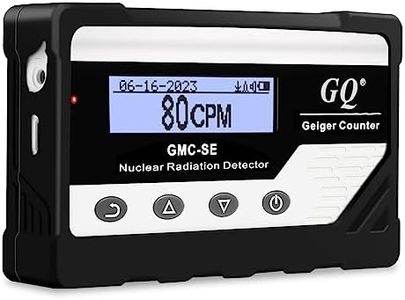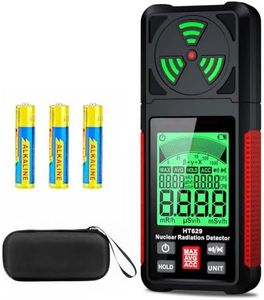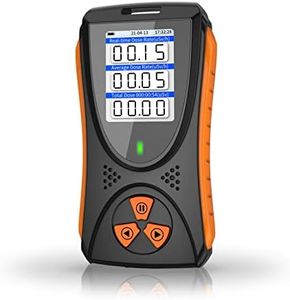We Use CookiesWe use cookies to enhance the security, performance,
functionality and for analytical and promotional activities. By continuing to browse this site you
are agreeing to our privacy policy
10 Best Radiation Meters
From leading brands and best sellers available on the web.By clicking on a link to a third party's website, log data is shared with that third party.
Buying Guide for the Best Radiation Meters
Choosing the right radiation meter can seem overwhelming, but by understanding the main features and how they relate to your needs, you can make a confident decision. Radiation meters, also known as Geiger counters or dosimeters, are used to detect and measure various types of radiation. Before buying, think about where and why you’ll use the meter—such as for home safety, scientific study, industrial environments, or travel. Your needs will point you to the best set of features.Type of Radiation DetectedRadiation meters can detect different types of radiation: alpha, beta, gamma, and sometimes X-rays. This spec tells you what kinds of radiation the meter can sense. For home use or general checking, a meter that detects beta and gamma radiation is usually sufficient, as these are most commonly found in practical situations. If you work in environments where alpha radiation is a risk (like certain labs or nuclear sites), you'll need a meter that covers all three. Always match the detection ability to the radiation risks you might actually encounter.
Detection RangeThe detection range is the amount of radiation (usually measured in microsieverts or millisieverts per hour, or counts per minute) the meter can measure. This tells you whether the device is suitable for checking low background radiation or higher-risk zones. For general safety or travel, a device with a lower detection range is fine, as you’re mostly looking for abnormal increases in background radiation. For professional or industrial use, make sure the meter handles higher ranges, as you might be exposed to stronger radiation sources in these settings.
Sensitivity and AccuracySensitivity tells you how small a change in radiation the meter can detect, while accuracy is about how close the reading is to the actual radiation level. Higher sensitivity and accuracy mean more reliable readings, especially at low radiation levels. If your main concern is peace of mind at home or while traveling, moderate sensitivity is enough. However, scientific or workplace monitoring demands high accuracy and reliable sensitivity, so choose accordingly based on your need for trustworthy data.
Display and Data ReadoutThis refers to how the meter shows you the radiation level—on a digital screen, analog needle, or even with lights or alarms. Some meters offer more detail, like graphs or historical data, while others provide simple real-time readings. For casual checks, a basic display is fine. If you need to log readings, compare results, or make reports, a device with a digital screen, memory storage, or computer connection is more suitable.
Power Source and Battery LifeRadiation meters are powered by batteries (disposable or rechargeable) or, less commonly, by mains connection. Battery life matters if you plan to use the meter for long periods or away from charging options. If you need a meter for occasional quick checks, most battery setups will do. For fieldwork or long shifts, look for a device with extended battery life or easy recharge features, so you’re not left without a working meter when you need it.
Durability and PortabilityThis spec is about how tough and easy to carry the meter is. Some have rugged cases and are waterproof or shockproof, good for outdoor or industrial use. Others are compact and lightweight, fitting in a pocket or small bag, which is useful for travel or quick home use. Think about where and how often you’ll carry the meter—choose a portable, durable device if you’ll be moving around a lot, or a larger, more stable one if it will mostly stay in one place.
